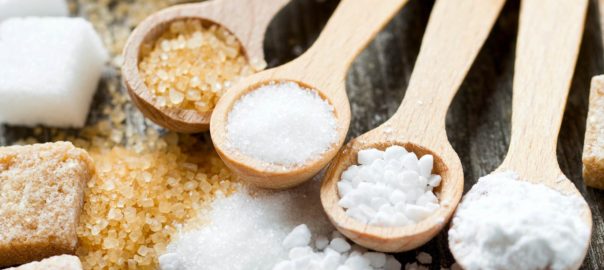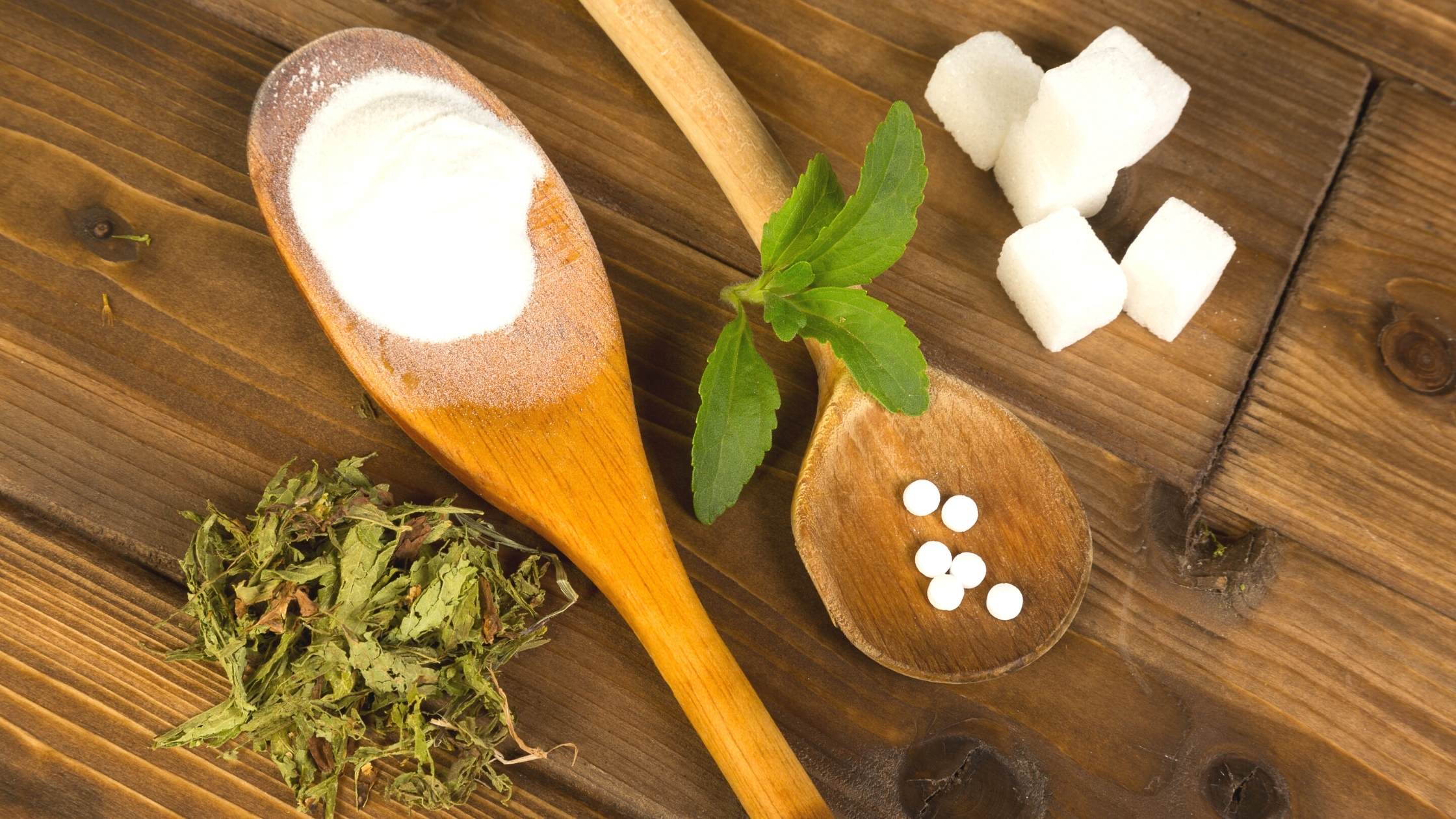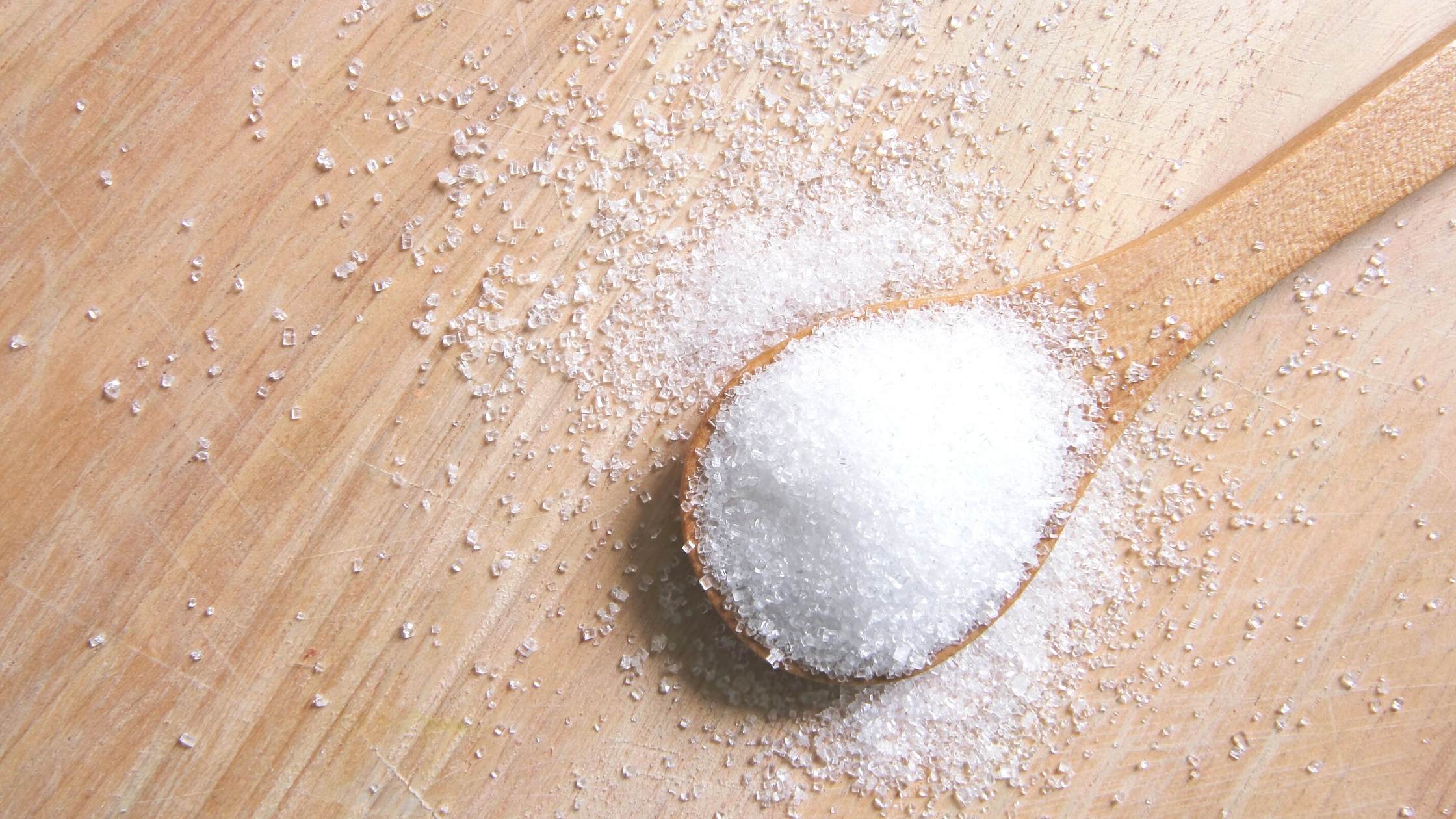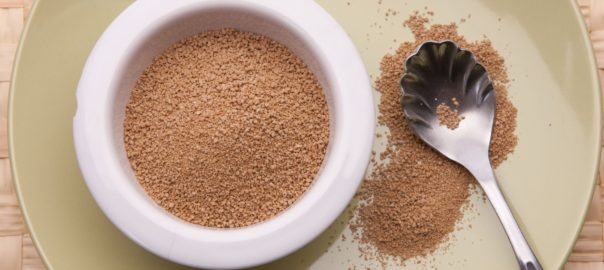A community member asked, “Can you share about hidden sugars in foods? And their various names? I have a diabetic in the family and get very frustrated trying to cut back on the sugars."
Sugar is a very tricky ingredient in our food supply. Manufacturers want to include it because we are predisposed to like sweet foods. However, unfortunately, this often means that sugars are added to things that don't need them, leaving us with a higher sugar intake and, often, a misguided palate when it comes to understanding what our food should taste like.
Common examples include adding sugar to things with fruit in them, such as applesauce, or adding sugar to things that don't really require it, such as ketchup.
One way to identify how much sugar is in a particular food is to look at the label. The sugar grams are listed as part of the nutrition facts. Obviously, you want to look for lower numbers in that category. Identifying how much sugar is in something does not however identify how many sugars or what they are.
One trick that manufacturers use to manipulate the ingredient list is using multiple sources of sugars. Because most of us know that the higher up on the ingredient list the more of that ingredient is in the package, manufacturers don't want any form of sugar as the first ingredient. So they split the sugars up by using a little fructose here, honey there, glucose at the end. This makes it very important to know the names of the various sugars.
Sugar, honey, maple syrup, agave, brown rice syrup, molasses, and barley malt, corn syrup, high fructose corn syrup, and fruit juice concentrates are all forms of sugar that are fairly simple to identify by name. Sugar itself is processed into different forms from the lowest process, sucanat (which stands for SUgar CAne NATural) to the most highly processed white, or table, sugar. In between are turbinado, muscovado, demerara, evaporated cane juice crystals, and date sugar. It's important to know that in this country the majority of brown sugar is nothing more than highly refined white sugar with a little molasses added for color and moisture. It's also important to know that if you are feeding a vegetarian or a vegan, many of them will not eat white sugar as it is typically processed through bone char.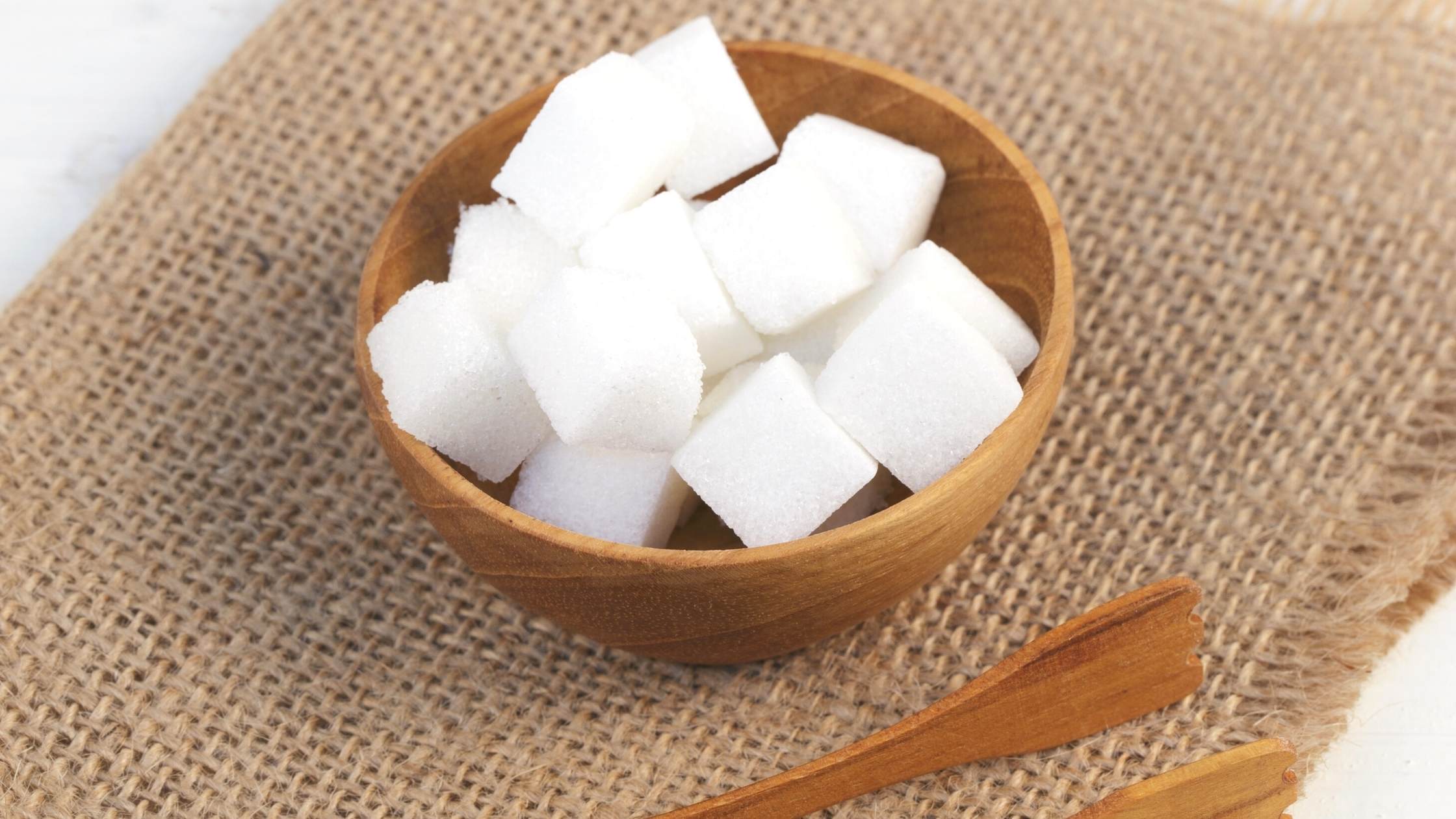
For other forms of sugar, it's important to understand that when processed, in most cases the sugar molecule is identified by the ending -ose. This includes fructose, lactose, glucose, dextrose, etc. Sugar alcohols, which do not have as much effect on blood sugar and insulin levels, primarily end in -ol. Examples would be sorbitol, mannitol, erythritol, xylitol, and others. Isomalt is the only sugar alcohol that does not follow that rule. I am not strictly opposed to sugar alcohols (unlike artificial sweeteners) however, because they are processed and can have a laxative effect if ingested in excess (or if you have a sensitive system), I feel that they should be used with caution and in moderation.
Many people with blood sugar instability who try to limit their sugar intake rely on artificial sweeteners. Listing both their common and chemical names, these are splenda, sucralose, neotame, acesulfame potassium, saccharine, nutrasweet, aspartame, and sweet-n-low. These are not healthy choices. Although they have zero calories they may to be carcinogenic or have the potential for other negative health effects.
There is another sweetener choice which is stevia. Made from a plant it is 300 times sweeter than sugar, has zero calories, and is considered a good choice for those who have blood sugar issues as it does not raise blood sugar levels. Unfortunately, there are now several chemical analogs available, purevia and truvia. These are not stevia, instead they are laboratory created versions of stevia, and should be considered an artificial sweetener and avoided as much as possible.
Managing Blood Sugar
When managing blood sugar for those who have diabetes there are several guidelines to follow:
- choose natural, low process sugars in moderation
- if you are going to consume sugar spread it out throughout the day rather than "saving" it all for a big dessert or other treat
- when consuming sugars make sure that you are also getting some protein to help balance the effect of the sugars in your system
- eating smaller meals more often, every 2 1/2-3 hours is often helpful for many people to keep a more stable blood sugar
- get protein at every meal
- reduce simple carbohydrates, white flour products, white pasta, white rice, these are easily broken down by the body to sugars
- reduce alcohol consumption, this is easily converted by the body
- eat foods lower on the glycemic index*
- if you are overweight losing weight can help with blood sugar management
- staying physically active is also important
- don't ignore your blood sugar, if necessary work with a doctor or nutrition professional to help you properly manage your blood sugar levels**
*The Glycemic Index is how much sugar foods have in them. The more processed a food is the higher its glycemic load. An example would be:
- apples - glycemic index 38 - low
- applesauce (unsweetened) - glycemic index 53 - medium
** Typical blood sugar levels (for non-diabetics) are considered to be:
- fasting (before a meal) - less than 83 mg/dl
- post-prandial (after eating) - less than 100 mg/dl 1-2 hours after eating
Learn More on Sugar: The Special Report 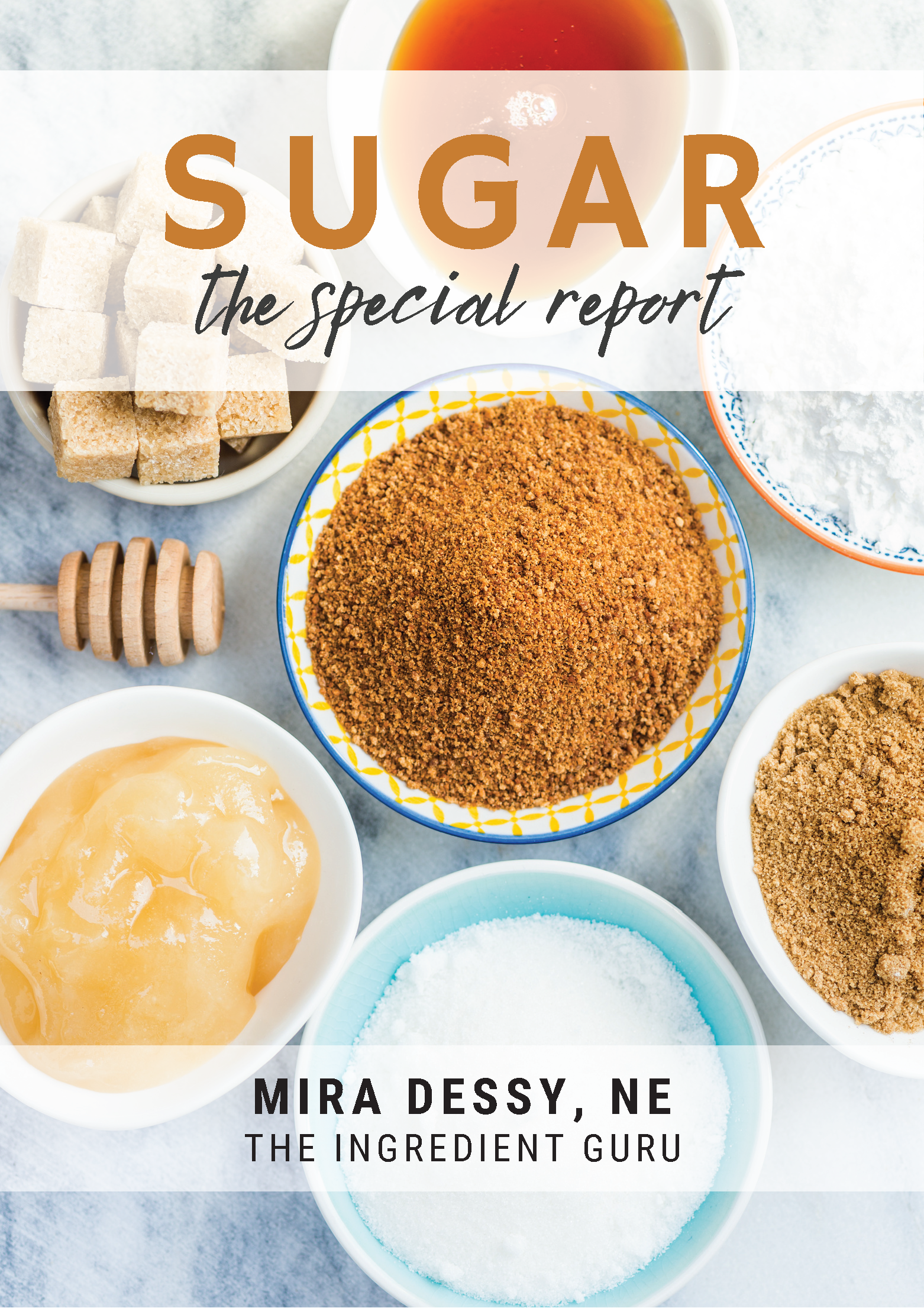
Dive into the eye-opening world of sugar with "Sugar: The Special Report". Discover the hidden dangers of excessive sugar and other sweeteners lurking in processed foods. Gain insights into the health impacts of sugar on chronic diseases and uncover simple steps to make healthier choices.
Whether you're looking to improve your diet or better understand the effects of sugar on your health, this eBook is a must-read. Get your copy now and take control of your sugar intake for a healthier, happier life!

